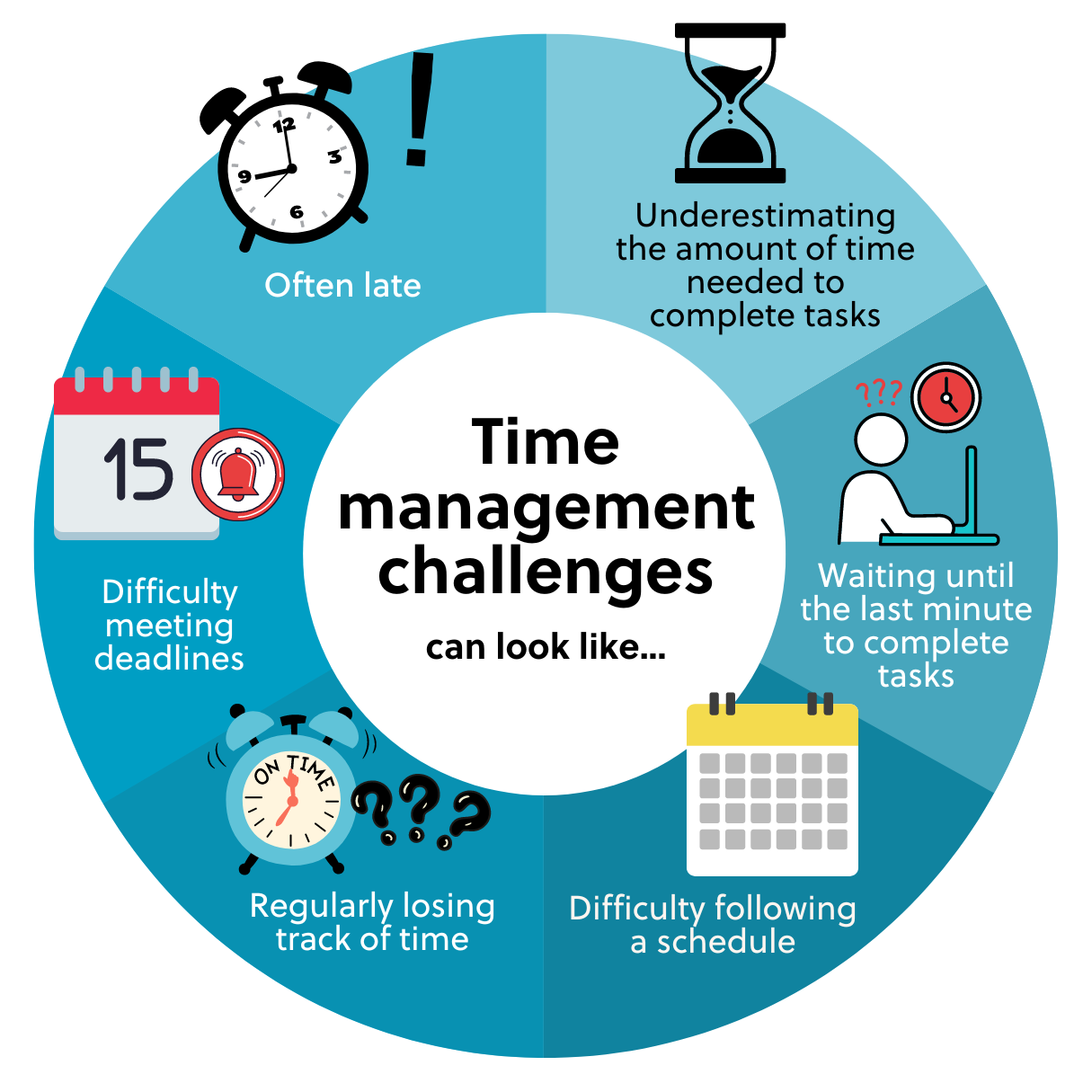Time Management for Students: Mastering the Art of Productivity
Effective time management is one of the most important skills a student can develop. Without it, academic success can feel overwhelming. Whether you’re juggling classes, extracurricular activities, or part-time jobs, managing your time well ensures that you stay on top of your commitments and reduce stress.
In this article, we’ll explore strategies and tips to help students master time management, improve productivity, and achieve their academic goals.

Why Time Management is Crucial for Students
For students, time management is not just about creating schedules; it’s about optimizing their time to achieve the best possible outcomes in both their academic and personal lives. Poor time management can lead to stress, burnout, and missed deadlines. On the other hand, effective time management helps you stay organized, reduce anxiety, and excel in your studies.
By developing strong time management habits, you can balance schoolwork, social activities, and personal time without feeling overwhelmed.
1. Set Clear Goals
The first step in mastering time management is setting clear, achievable goals. Goals give you direction and a sense of purpose, helping you stay focused throughout the semester.
Break Down Long-Term Goals
Start with your long-term academic goals, such as graduating with honors, mastering a particular subject, or landing an internship. Then, break these into smaller, more manageable short-term goals. For example, you could set a goal to complete a chapter each week or finish a project by the end of the month.
Prioritize Tasks
Once you have your goals, prioritize them. Use a priority matrix to categorize tasks based on urgency and importance. Focus on completing high-priority tasks first, such as preparing for upcoming exams or submitting assignments, before moving on to less critical activities.
2. Create a Study Schedule
Having a study schedule is one of the best ways to manage your time effectively. By scheduling study sessions, breaks, and other activities, you’ll ensure that your day is productive and balanced.
Block Time for Study Sessions
Set aside specific blocks of time for studying each day. Consistency is key, so try to study at the same time each day to establish a routine. Use a calendar or a digital scheduling tool like Google Calendar to keep track of your study sessions and deadlines.
Use the Pomodoro Technique
One popular time management technique is the Pomodoro Technique, where you study for 25 minutes and then take a 5-minute break. After four “Pomodoros,” take a longer break of 15-30 minutes. This method helps you stay focused and avoids burnout.

3. Avoid Procrastination
Procrastination is one of the biggest enemies of effective time management. Putting off tasks not only increases your stress levels but also reduces the quality of your work.
Break Tasks into Smaller Chunks
One effective way to combat procrastination is by breaking larger tasks into smaller, more manageable chunks. This makes tasks feel less overwhelming and allows you to make steady progress without feeling paralyzed by the size of the project.
Use Time Blocks for Focus
Instead of trying to work for hours at a time, use focused time blocks. For example, allocate 30 minutes to focus solely on studying for a test without checking your phone or social media. This helps you maintain concentration and avoid distractions.
Eliminate Distractions
Identify common distractions in your study environment, such as your phone or social media, and take steps to eliminate them. For example, turn off notifications on your phone or use apps like Forest to stay focused.
4. Utilize Tools and Apps
There are a wide variety of tools and apps available to help students manage their time effectively. These tools can help you stay organized, set reminders, and track progress.
Use Task Management Apps
Apps like Todoist, Trello, or Notion allow you to organize tasks, set deadlines, and track your progress. They also allow you to collaborate with peers if you’re working on group assignments.
Time-Tracking Apps
Time-tracking apps like Toggl or RescueTime help you monitor how you’re spending your time. This can be useful for identifying areas where you might be wasting time and adjusting your habits accordingly.
5. Take Care of Yourself
Managing your time effectively doesn’t just mean staying busy all the time—it also means making sure you take care of your physical and mental health.
Get Enough Sleep
Adequate sleep is crucial for focus and memory retention. Aim for 7-9 hours of sleep each night to ensure your brain is functioning at its best during study sessions. Lack of sleep can reduce your cognitive abilities, making studying less effective.
Eat Well and Exercise
Maintaining a balanced diet and exercising regularly can also improve your concentration and productivity. Foods rich in omega-3 fatty acids, antioxidants, and proteins can help boost brain function.
Practice Mindfulness
Stress management is a key aspect of effective time management. Engage in mindfulness activities like yoga, meditation, or deep breathing exercises to clear your mind and reduce stress levels.

6. Learn to Say No
As a student, you may feel the pressure to say yes to everything, from social events to extra-curricular activities. However, learning to say no is an important part of managing your time effectively.
Prioritize Your Commitments
When someone asks for your time, evaluate whether it aligns with your goals or if it’s just a distraction. Say no to activities that don’t contribute to your priorities, and make sure you have enough time for your studies and personal well-being.
Be Assertive
It’s okay to turn down invitations or commitments if you feel overwhelmed. Being assertive about your boundaries can help you stay on top of your priorities and reduce stress.
FAQs on Time Management for Students
1. How can I stay motivated to study?
Motivation can be a challenge, especially when studying for long periods. To stay motivated, set small, achievable goals, and reward yourself when you complete them. Use a study schedule to track your progress and keep yourself accountable.
2. What if I can’t stick to my study schedule?
If you find it difficult to stick to your study schedule, try to identify what’s causing the issue. Are you setting unrealistic goals? Are you distracted by something else? Adjust your schedule as needed, and remember that consistency is more important than perfection.
3. How can I avoid distractions while studying?
Minimize distractions by turning off your phone or using apps like Focus@Will or Forest that help you stay focused. Create a quiet study space that’s free from interruptions and let others know when you need to concentrate.
4. Should I study alone or in groups?
It depends on your personal preference. Some students thrive in group study sessions where they can discuss and reinforce ideas, while others find solo study sessions more productive. Experiment with both methods to see which works best for you.
Conclusion
Effective time management for students is not about doing more—it’s about doing things more efficiently. By setting clear goals, creating a realistic schedule, avoiding procrastination, and using tools to stay organized, you can improve your productivity and reduce stress. Don’t forget to take care of yourself by getting enough sleep, eating healthy, and practicing mindfulness. With these tips, you’ll be well on your way to managing your time and achieving academic success.
Mastering time management might take some practice, but once you develop these habits, you’ll notice a significant improvement in your ability to handle schoolwork, personal commitments, and downtime. Start small, stay consistent, and enjoy the benefits of a well-managed life.








